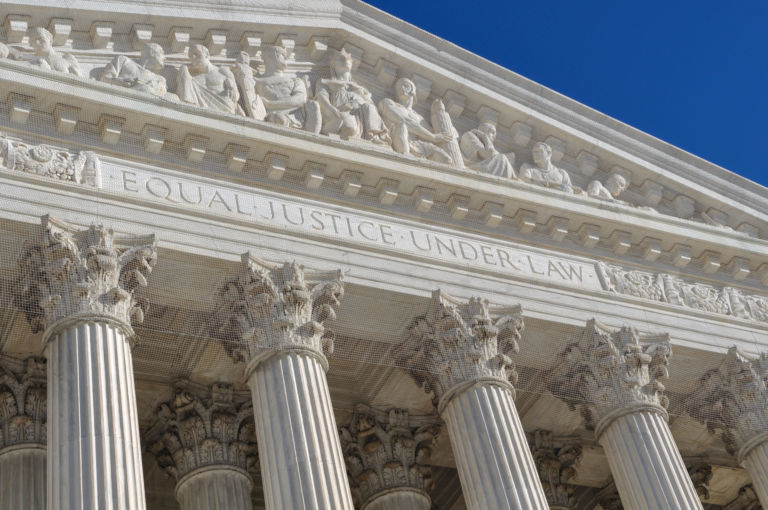Haisten Willis writes for the Washington Examiner about a U.S. Supreme Court decision that could strike a blow against bureaucratic overreach.
Former President Donald Trump has long promised to curtail the “Deep State” of federal government agencies and drain “the swamp” of bureaucrats in Washington, D.C.
A pending Supreme Court ruling could help him achieve those goals, even three years after leaving office.
The high court will soon issue a ruling that could reshape the balance of power between federal agencies, the judiciary, and legislative branches, while simultaneously disrupting President Joe Biden’s progressive regulatory agenda.
A ruling that curtails or fully overturns the 40-year-old precedent known as the Chevron deference would put an end to courts deferring to federal agencies’ reasonable interpretations of ambiguous statutes, which many businesses and industry groups say has led to overregulation from unelected government officials.
The ruling itself could be a win for Trump in a roundabout way, as his judicial nominees, especially Justice Neil Gorsuch, who has long opposed Chevron, would be largely responsible. But it could also represent a double-edged sword in a second Trump administration, as the executive branch itself would lose some power.
“The idea is to empower Congress more, relative to the executive branch,” said Mark Chenoweth, president of the New Civil Liberties Alliance. “What we had been seeing under Chevron was a 180-degree flip from administration to administration where they’d change dozens and dozens of rules. And there has been limited ability to challenge some things through the courts.”
Chevron was mostly celebrated by conservatives when the Supreme Court handed it down in 1984, as it was expected to curtail the influence of “activist” judges who were seen as legislating from the bench. But over time, figures on the Right became wary of the ruling, as Washington-based federal agencies were empowered to fill in gaps left by Congress or try to use existing legal language in novel ways.
“Right now, you have agencies sort of rummaging through old statutes and looking for authorities that Congress never gave them,” Chenoweth added.

